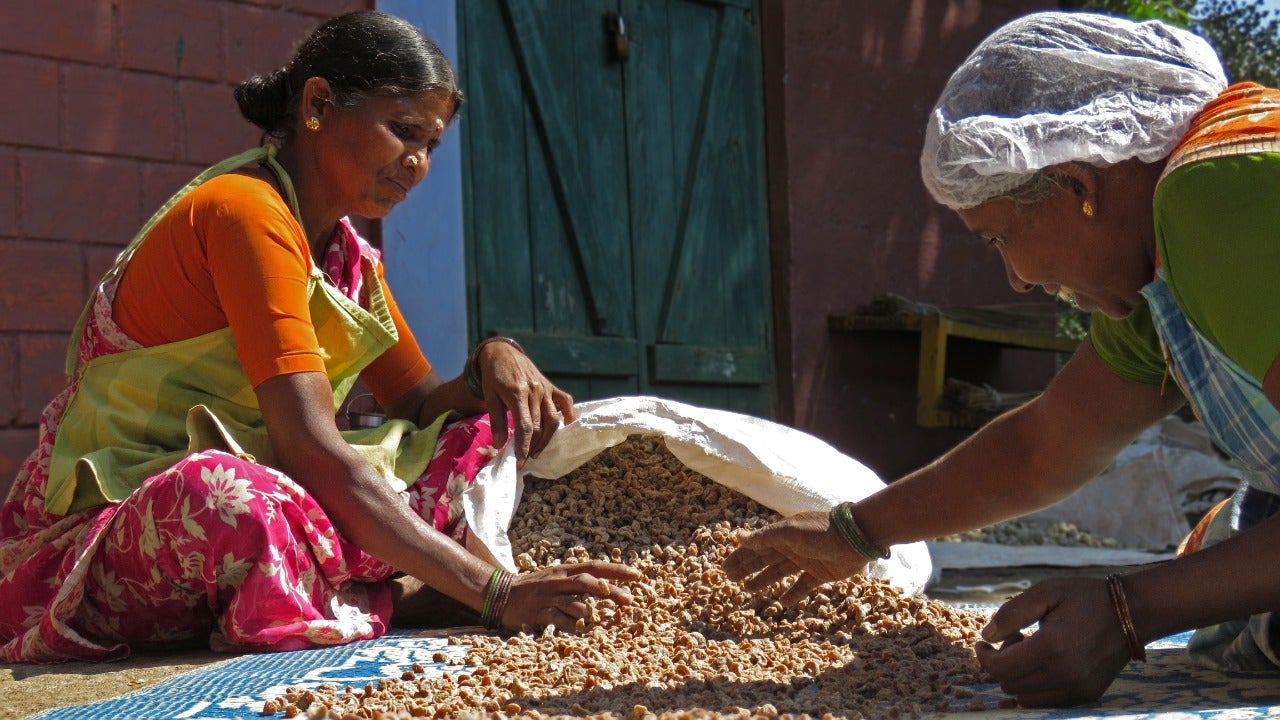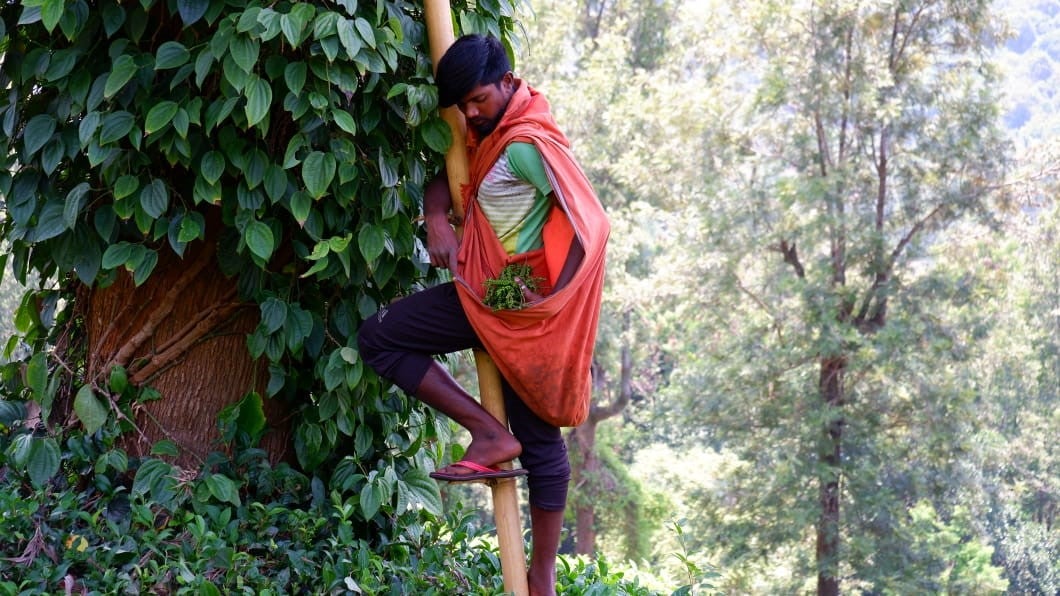 In Tamil Nadu, Ramani and her potters’ enterprise has used the project’s one-time assistance to buy five electric potters’ wheels.
In Tamil Nadu, Ramani and her potters’ enterprise has used the project’s one-time assistance to buy five electric potters’ wheels.
It was the beginning of 2020. In Tamil Nadu’s Salem district, local entrepreneur Vijayalakshmi and her husband were giving the finishing touches to the silver anklets they produce at their home-based enterprise. Further north, near the seaside town of Puducherry, Ramani and her group of potters were looking forward to the arrival of tourists to buy their handcrafted wares.
Up in the picturesque Nilgiri Hills, a tribal farmers collective was preparing for yet another bumper harvest. And across the ocean in Singapore, Maheswaran, a land surveyor, was busy chalking out his work schedule for the next few weeks.
By May 2020, however, the COVID-19 pandemic had turned their worlds upside down. With orders drying up, Vijayalakshmi could no longer pay her workers. “We were facing a complete shutdown. And this was the only work we knew!”
Near Puducherry, Ramani and her 20-member potters’ group faced a double blow. “We couldn’t collect clay from the lake to make our pots and, in the absence of tourists, we had no customers,” she recounted.
In the Nilgiri Hills, the tribal farmers collective could find no buyers. “We couldn’t sell our harvest, and with no revenue coming in, we couldn’t buy the produce from our members either,” recalled Jestin Paul, CEO of the Aadhimalai Producers Collective, which has more than 1,600 farmer members.
Maheswaran, now out of a job, had returned from Singapore to his native Tamil Nadu.
Sustaining village enterprises
Given the enormity of the economic distress facing the state’s micro enterprises, the World Bank-assisted Tamil Nadu Rural Transformation Project – like the national and state government - swung into action.
To mitigate the impact on struggling village enterprises and farmer groups, the project developed a COVID-19 assistance package that helped them stay afloat during the crisis. The package not only gave a new lease of life to individual enterprises by providing them working capital, but also gave a one-time capital grant to collectives.
With the Rs. 50,000 (about $700) she received from the package, Vijayalakshmi was able to retain four of her seven employees and continue her decades-old family enterprise of silver anklet production.
Near Puducherry, Ramani and her potters’ enterprise used the project’s assistance to buy five electric potters’ wheels, enabling them to ramp up their daily production from 20 to 50 artefacts.
In the Nilgiri Hills, the tribal farmers collective used the Rs 10 lac (about $13,500) they received to diversify from their traditional produce of honey, beeswax, pepper, clove and nutmeg. With the growing demand for millet, they purchased a millet processing machine and strengthened the value-added venture of soap production.
The project also helped secure the livelihoods of the fisherwomen of the Sangam Federation, more than a third of whom are widows. With public transportation off the roads, the women used their one-time capital grant to buy a van, customized with freezer boxes, to take their catch to market.
Creating new jobs for returning migrants
That’s how Maheswaran, with no job in hand, converted his deep interest in horticulture into a garden enterprise. Today, Maheswaran is the proud owner of the Velan Nursery Garden which sells saplings and seeds, indoor plants and fertiliser. “With an aged mother to look after, the package helped me kick-start my journey as an entrepreneur,” he said with a smile.
Between June and December 2020, around Rs 300 crore ($40 million) was disbursed in direct support to more than 88,000 individual enterprises, more than half of which are led by women.
The road ahead
While the project has provided immediate relief to Tamil Nadu’s nano and small enterprises, deeper challenges remain. Will these tiny enterprises be able to sustain themselves and expand? Will they be able to better withstand future crises?
The project now has the enormous responsibility of sowing the seeds of resilience among the state’s rural communities. The writing on the wall is clear. COVID-19 is not the first such crisis and will not be the last either. How well communities cope with future adversities depends on how well-prepared they are. The time for transformation begins now.
With inputs from Shouvik Mitra, Ramasubramanian, Devaa Kumaran, Arun Kumar, and Vivekasibi.
Also see: Stitching Dreams: In Tamil Nadu, Rural Women Show the Way to Start Up India (worldbank.org)




Join the Conversation